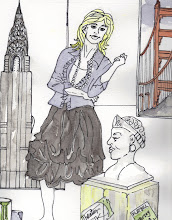Parts of Germany, the more Catholic parts, hold their own holidays. If you are a German, especially if you are a German Catholic, or a Catholic German, you already know this. You don’t need no stinking signs on the doors of the town hall, the bakeries, the banks, the small appliance stores, the insurance / investments office, the travel office, the knick-knack store, the antique store, the DHL / paper goods store, and especially not on the discount grocery store to which I walked in the freezing cold on a Wednesday late afternoon. Since it was Wednesday, I already knew – from previous abortive trips into the Alstadt – that most of the aforementioned shops would not be open. The Germans, bested only by the French, I believe, seem to think that working 2 and ½ days is sufficiently taxing to grant them a half day off before they have to put nose to the grindstone for another 2 and ½ days. Wednesday afternoons (and nearly as often Friday afternoons) belong to the folk!
Heilige Drei Könige, otherwise known as Epiphany, is annually celebrated in parts of Germany on January 6 to mark the three wise men’s visit to baby Jesus. This day also marks the end of the 12-day Christmas season. Christians all over the world observe Epiphany. It is worth noting that when certain Germans – and they know who they are – observe Epiphany as gesetzliche Feiertag, a public holiday, they are in no small way reasserting the separatist attitude that pervades Germany as a whole and is an elemental aspect of the country’s history best evidenced by the survival of the Federal States as distinct entities. (Be warned: This next section is a self-indulgent digression. Okay. So the US has a few quirky residual state loyalties, too. When someone from The South wears a gray uniform and waves a Confederate flag– just for fun, don’t you’all know - they aren’t all that different from the Bavarians dressing up in their Trachten. I recently saw a boy riding a bicycle in front of the church situated on one of the two short streets that make up St.Wolfgang who was using a cushion covered with the Bavarian flag on his bike seat. It seems to me that I have seen kids in the South putting Confederate flags to the same use.)
Germany is a Federal Republic consisting of sixteen states. Epiphany is celebrated only in the German states of Baden-Wuerttember, Saxony-Anhalt, and Bavaria. Mariä Aufnahme in den Himmel (mostly referred to as Mariä Himmelfahrt) is celebrated on August 15 in only two federal states in Germany: Bavaria and Saarland. Buß- und Bettag, the Day of Repentance and Prayer, is observed only in the German states of Bavaria and Saxony, and it a holiday of the Evangelican Church. Starting to get it? As you may have suspected about now, Bavaria observes every German religious holiday. Now I understand why I can greet Germans in this southern village with the traditional Bavarian greeting of Gruß Gott and have them always respond with more than a nod or a grunt, despite their squinty-eyed stares indicating I am not to be trusted and that they know I am probably just masquerading as Catholic.
Pause here with me for a moment to reflect again on the Day of Repentance and Prayer. In Denmark, this holy day is called Store Bededag and it is s also a statutory Danish holiday. The Danish don’t make much statutory, but when they do, it is generally based on the soundest sort of linear reasoning. For instance, legend has it that when the Nazis demanded that Danish Jews wear stars during the German occupation of Denmark, King Christian X said that all Danes would wear stars. From what I have learned about the German psyche, this was only permitted because a rule, as any good German knows, is a RULE. This story gives you, dear reader, a rare glimpse into the mind of a Dane. Keep it simple - and we don't just mean Danish modern...With the same sort of cut-to-the-chase attitude as his predecessor, King Christian V introduced Store Bededag as a holiday in the Church of Denmark in 1686; he saw it as a collection of minor (or local) Roman Catholic holy days consolidated into one day. The Church of Denmark has observed this tidy holiday since the Reformation; with typical Danish informality, they have come to call it General Prayer Day, All Prayers Day, or Common Prayer Day. With our 21st century knowledge about mergers & acquisitions, most of us would expect a few Saints to be miffed; Saint…CEO…lose your 15 minutes of fame, it must feel pretty much the same.







